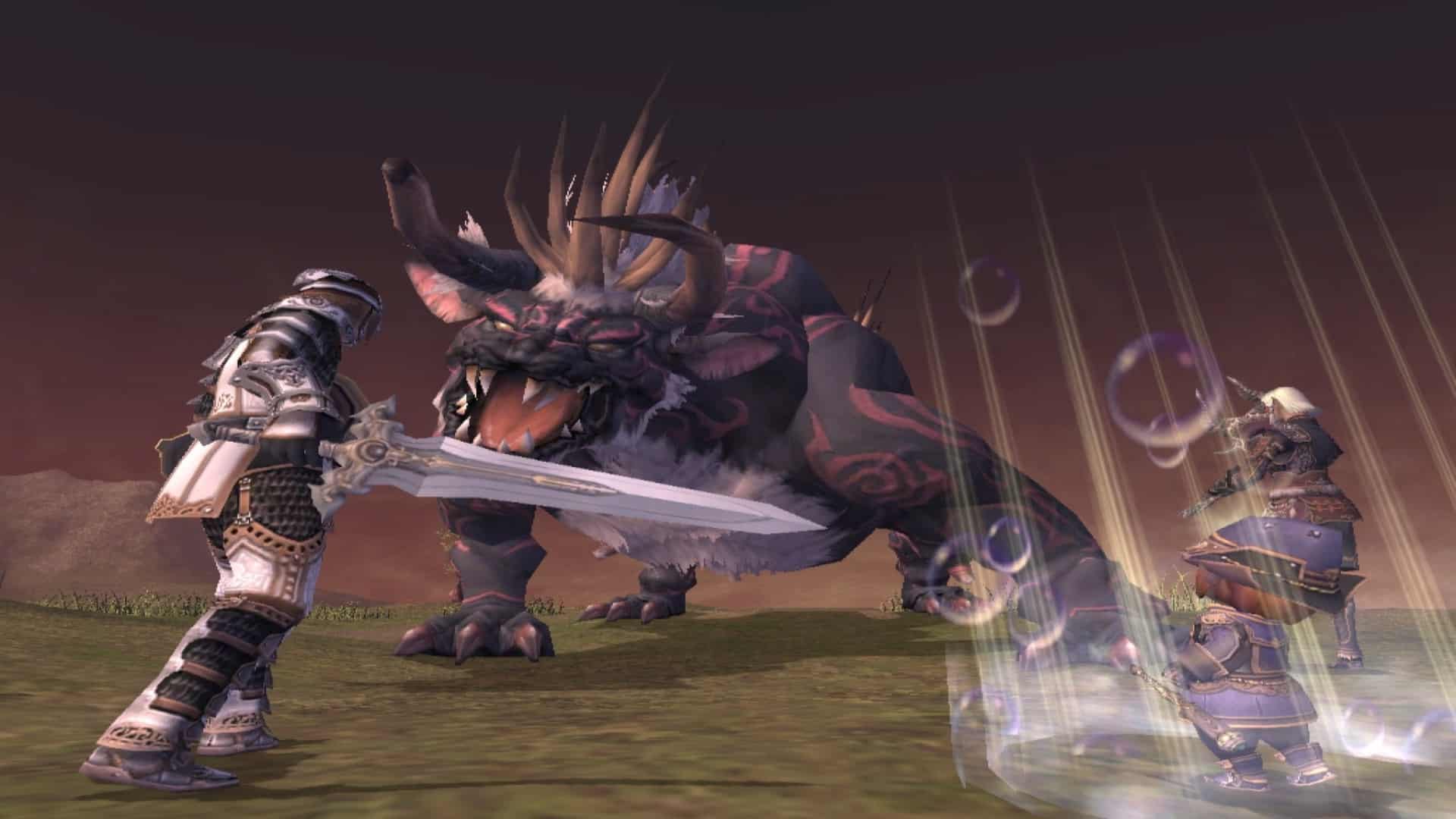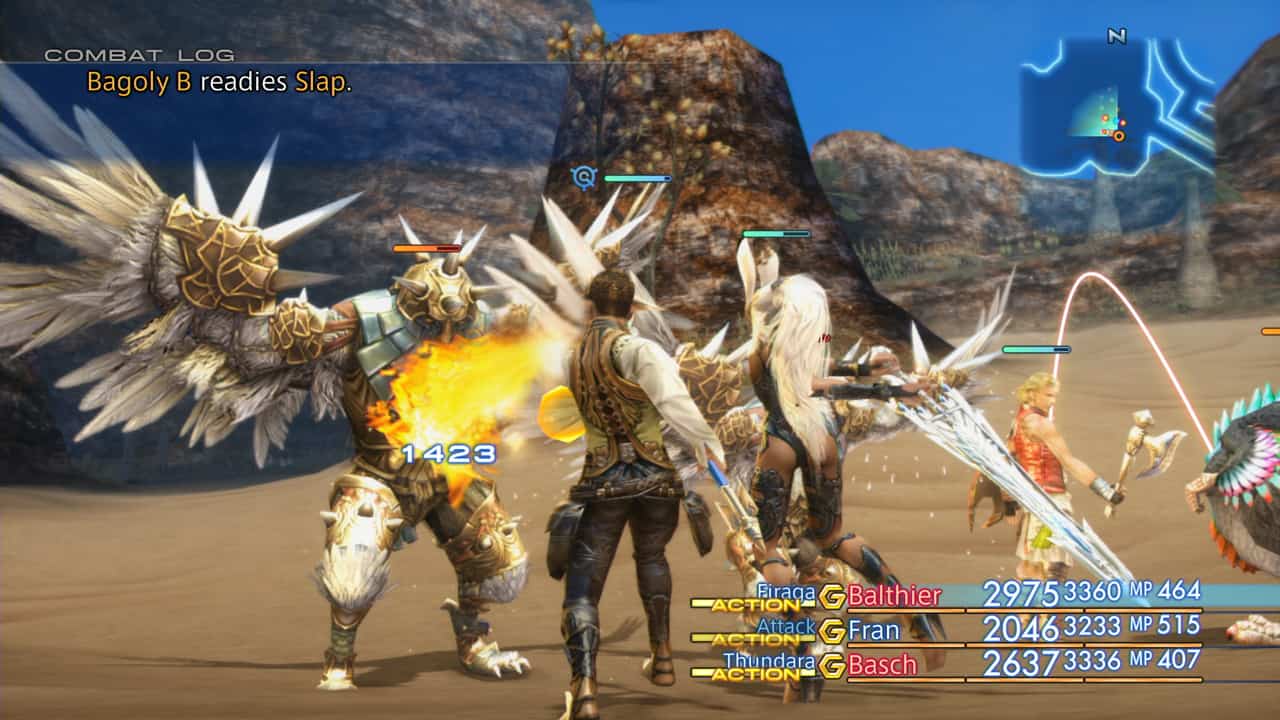Since the beginning, the Final Fantasy (FF) job system has been central to its gameplay. The characteristics of these jobs have become more sophisticated as the series progressed, but the main concept stayed the same. In FF’s job system, party members each have roles (or classes) that grant them individual strengths, weaknesses, stats, equipment, abilities, and skills.
Most job systems will allow FF characters to swap between multiple different jobs in an instant, while others will penalize you for doing so. Some FF games have hundreds of jobs to choose from, while others have only a handful. Several games have their job progression systems.
To date, there are almost 150 jobs across nearly 50 games. There’s a lot to get through, but this article will examine everything you’ll need to know about Final Fantasy Jobs without talking specifics.
Job Classes
There are 87 recurring job classes across the Final Fantasy series. Some classes, like Alchemist and Chemist, are nearly identical, and others, like Freelancer and Onion Knight, are the same class.
Even if a class appears in multiple games, it doesn’t mean they’ll have the same skill. I recommend looking at our more in-depth class guides for more details.
| Recurring Jobs |
| Alchemist, Animist, Arcanist, Archer, Arithmetician, Assassin, Astrologian, Bard, Beastmaster, Berserker, Bishop, Black Belt, Black Mage, Blue Mage, Cannoneer, Chemist, Cleric, Dancer, Dark Knight, Devout, Dragoon, Elementalist, Engineer, Fighter, Flintlock, Freelancer, Fusilier, Gambler, Geomancer, Gladiator, Green Mage, Gunner, Holy Knight, Judge Magister, Knight, Lancer, Machinist, Magus, Master, Merchant, Mime, Monk, Moogle Knight, Mystic, Mystic Knight, Necromancer, Nightblade, Ninja, Onion Knight, Orator, Paladin, Parivir, Pugilist, Puppetmaster, Ranger, Ravager, Red Mage, Rune Knight, Sage, Samurai, Scholar, Sentinel, Sky Pirate, Soldier, Squire, Summoner, Sword Saint, Templar, Thief, Time Mage, Trickster, Viking, Warmage, Warrior, White Mage |
Along with recurring jobs, several jobs and classes appear in only one game. Of the 61 exclusive jobs in the Final Fantasy series, most of them either belong to one character or aren’t fleshed out, like FF Tactics’ Witch of the Coven, belonging to Valmafra Lenande.
However, they can sometimes be game-specific, like FFX-2’s Mascot, Festivalist, or Psychic. All three characters can use these job classes provided they find the means to use them.
| Game-Specific Jobs | |
| FFX-2 | Floral Fallal, Full Throttle, Machina Maw, Mascot, Festivalist, Psychic |
| FFXI | Corsair |
| FFXII | Foebreaker |
| FFXIV | Arcanist, Armorer, Botanist, Carpenter, Culinarian, Goldsmith, Fisher, Leatherworker, Marauder, Miner, Pugilist, Sentinel, Thaumaturge, Weaver |
| FF Tactics | Ark Knight, Arithmetician, Cardinal, Commoner, Celebrant, Cleric, Deathknight, Divine Knight, Dragonkin, Duke (Druksmald Goltanna), Duke (Bestrald Larg), False Saint, Fell Knight, Game Hunter, Grand Duke, High Confessor, Netherseer, Princess, Skyseer, Sorcerer, Viscount, Witch of the Coven |
| FF T. Advance | Biskmatar, Hermetic, Morpher, Runeseeker, Sniper |
| FF T. A2 | Agent, Heritor, Keeper, Lanista, Nightshade |
| FF: The 4 H of L | Bandit, Dark Fencer, Hero, Party Host, Seamstress, Shaman |
| FF Dimensions | Memorist |
Even in games with unique job classes, they still flesh out their job systems by adding recurring jobs from the series. It’s rare to see a Final Fantasy game that doesn’t have a Warrior, White Mage, or Thief, even in games that don’t use the job system specifically.
For example, although FFIX doesn’t use a job system, Zidane, Garnet, Steiner, and Vivi are recognized as Thief, White Mage, Knight, and Black Mage, respectively.
Character Growth Systems

Without character growth systems, you wouldn’t be able to level up your jobs. The job system is a system all on its own, but it uses other systems to upgrade. For example, to level up a job, most job systems will useability points, experience points, levels, and stat growth systems.
| Recurring Growth Systems | ||
| System | Description | |
| Job System | Levels up jobs specifically using one of the following 5 systems. | |
| Ability Points (AP) | Separate experience gained after the battle for leveling up skills. | |
| Experience Points (EXP) | Main experience gained after a battle for leveling up characters. | |
| Gil (Money) | It can be used to buy skills or as a payment to level up. | |
| Level | This is a progression mechanism that changes your stats. | |
| Stat Growth | Permanent stat improvement after leveling up. | |
Of the main Final Fantasy series, FFI, III, V, X-2, XI, XII, XIII, and XIV use the job system by name. However, as stated, all Final Fantasy games use the job system one way or another.
| Game-Specific Growth Systems | ||
| Game | System | Description |
| FFVI | Magicite | Magicite are the postmortem remains of espers, also known as summons. Teaches magic, grants stat boats, and allows them to summon espers. |
| FFVII | Materia | Materia is items characters can use to cast spells, summon espers, use new command abilities, give support abilities, or boost stats. |
| FFVIII | Junction System | The Junction System allows characters to draw magic from enemies or items. Players can either use the magic or “junction” magic towards their attributes or weapons. |
| FFX | Sphere Grid | The Sphere Grid is a roughly circular grid with interconnected nodes and clusters. Each node contains abilities, skills, stats, or a space to place a node. |
| FFX-2 | Dressphere | Dresspheres, which have to be equipped with a Garment Grid, allow characters to change their appearance, weapons, base stats, and class in the middle of battle. |
| FFXII | License Board | The License Board consists of different tiled boards for each job with hundreds of squares representing a skill, spell, equipment, or augment. |
| FFXIII-2/3 | Crystarium System | The Crystarium System uses experience points to upgrade stats and gain abilities. You can choose to upgrade different roles or “Paradigms” simultaneously. |
| FFXIV | Disciplines | Disciplines are the foundation of XIV’s Armory System and come in four base classes: War, Magic, Hand, and Land. Jobs in XIV are used to create or upgrade items. |
| FFXV | Ascension | Ascension uses AP to unlock nodes that represent different abilities based on color. Yellow favors combat abilities, purple favors passive effects and boosts. |
| FF Type 0 | Altocrystarium | The Altocrystarium increases the player’s level, magic spell’s power, cast time, range, and other attributes by spending Phantoma absorbed from enemies. |
| FF Tactics | Stat Growth | Stat Growth in FF Tactics is governed by gender, race, jobs, and tactics used in battle. Males gain more HP and PA, while Females gain more MP and MA on level up. |
| FF Legends | Transformation | Transformation is a class change mechanic used by multiple classes in the FF Legends games. Characters can evolve or revert by eating or installing parts. |
| FF Dissidia | Crystal Strength | Crystal Strength allows players to unlock a unit’s latent power and provide permanent stat augments by using colored crystals, which are job/character-specific. |
| World of FF | Mirage Board | The Mirage Board grants recruited Mirages (enemies) the ability to upgrade stats and abilities. The Board needs SP, which is gained when the Mirage levels up. |
Some of these game-specific growth systems will be expanded on in the next section.
Main Job System Appearances
Although the Final Fantasy ability system appears in its way throughout the series, the job system, class system, or job class system recurs the most. While fundamental in the series, especially in the Tactics series, the system itself has gone through various changes.
Final Fantasy I

When starting a new game, players choose to assign each of the four Warriors of Light a job from a pool of six classes. Each class has its own set of unique attributes.
Thieves have abilities that increase your chance of fleeing. White and Black Mage’s can use the strongest spells in their class, and the Red Mage can cast both Black and White Mage spells but can’t learn the strongest spells in their class, like Holy or Flare.
| Final Fantasy I Jobs | |
| Base Job | Advanced Job |
| Warrior | Knight |
| Thief | Ninja |
| Monk | Master |
| Red Mage | Red Wizard |
| White Mage | White Wizard |
| Black Mage | Black Wizard |
The player cannot switch the party’s classes once they’re assigned at the beginning of the game, but you can complete an optional story event that upgrades your party. Not only will they become stronger stat-wise, but they will also gain access to new skills.
Final Fantasy III

All party members begin as “Onion Knights” on the original NES or “Freelancers” in the 3D remakes. After finding the Wind Crystal in the Altar Cave, which is the first location the party visits, the Onion Knights or Freelancers gain access to 21 more jobs.
Reaching a point in the plot bestows players with new “advanced” or “master” versions of classes. This happens up to four times or each time you find a crystal. Each job has its own set of skills earned by leveling up the job, not the character.
| Final Fantasy III Jobs | |
| Starting Jobs | Onion Knight (NES), Freelancer (3DS) |
| Wind Crystal (Altar Cave) | Warrior, Monk, White Mage, Black Mage, Red Mage, Thief (3DS) |
| Fire Crystal (Molton Cave) | Ranger, Knight, Thief (NES), Scholar, Geomancer (3DS) |
| Water Crystal (Cave of Tides) | Geomancer (NES), Dragoon, Viking, Dark Knight, Evoker, Bard, Black Belt (NES) |
| Earth Crystal (Ancients’ Maze) | Black Belt (3DS), Devout, Magus, Summoner, Sage (3DS), Ninja (3DS) |
| Eureka (NES Only)* | Sage (NES), Ninja (NES) |
*Eureka, an optional dungeon in FFIII, is still accessible in the 3DS version, but you don’t need to go there to receive the Sage or Ninja job upgrade.
In the NES version of FFIII, you don’t need to progress in a “basic” class to use the “master” ones, as you did in Final Fantasy I. The “Capacity System” works by making the most powerful classes stat dependent, which is unlocked as you play.
In the 3DS version, the Job Adjustment Phase was introduced, which gave consequences for constantly switching jobs. The Job Adjustment Phase encouraged players to try out all jobs and not change every time they needed a White Mage to heal or a Thief to pick a lock.
While under the Job Adjustment Phase effect, the character’s primary stats are reduced by approximately 12.5% but will return to normal after a set amount of battle (5-10). Each job has hidden values determined by the “mastery” of the job (for example, Black Belt would receive a harsher stat decrease than Monk), whether they’re a physical or magic-user, and their classification as a Chaotic or Lawful job (for example, a Knight is Lawful, but a Thief is Chaotic).
Switching from a Chaotic job to a Lawful job and vice versa will take longer for the Job Adjustment Phase effect to wear off, same with changing from a Physical to a Magic job.
In both versions, characters level up separately from their jobs to a max of 99, but players can also level up their jobs and skills to a max level of 8. “Basic” jobs level up faster than “master” jobs, and stats won’t change (except HP) when switching. If you switch a character with a high Strength stat to a mage, they will be weaker than a character with a high Magic stat.
Final Fantasy V

Players can freely switch between their starting jobs while maintaining their progress in each one. Ability Points (AP) or ABP and multiple job skills were introduced. ABP and EXP are earned after a successful battle, which the player can use to learn new skills (ABP) or level up their job and character (EXP). Jobs now have multiple command and support abilities.
For example, Monk is the only class that can use the Focus, Kick, and Chakra command abilities, and it’s the only class that gains passive skills that increase HP. To achieve these passive abilities, the Monk has to pay 100, then 150, then 300 ABP over time.
| Final Fantasy V Jobs | |
| Starting Job | Freelancer |
| Wind Crystal (Wind Shrine) | Knight, Monk, Thief, Black Mage, White Mage, Blue Mage |
| Water Crystal (Walse Tower) | Red Mage, Time Mage, Summoner, Berserker, Mystic Knight, Mime |
| Fire Crystal (Fire-Powered Ship) | Beastmaster, Geomancer, Ninja |
| Fire Crystal (Chocobo Forest) | Ranger, Bard |
| Earth Crystal (Ronka Ruins) | Dragoon, Dancer, Samurai, Chemist |
| Sealed Temple Jobs* | Necromancer, Cannoneer, Gladiator, Oracle |
* The Sealed Temple is unique to Final Fantasy V Advance.
Final Fantasy V has one of the best job systems in the mainline games, and several other FF games take their cues from its system. Blue Mage and Samurai make their first appearance in FFV, now industry staples. Blue Mages are unique to the Final Fantasy series as they can learn specific skills after being attacked and use physical damage equipment.
Final Fantasy X-2

Characters in FFX-2 use dress spheres to gain abilities and level up. Yuna, Rikku, and Paine can change their dress spheres in the middle of battle if they’re equipped with their own Garment Grids.
| Final Fantasy X-2 Jobs | |
| Starting Jobs | Gunner, Thief, Warrior |
| Prologue | Songstress, Festivalist (Remaster), Psychic (Remaster) |
| Chapter 1 | Black Mage, White Mage, Gun Mage |
| Chapter 2 | Dark Knight (2,3,5*), Alchemist (2,3,5), Floral Fallal, Machina Maw, Full Throttle |
| Chapter 3 | Samurai, Gambler (3,5), Berserker, Trainer |
| Chapter 4 | N/A |
| Chapter 5 | Mascot |
| Last Mission** | Freelancer |
* Chapters where you can also obtain these dress spheres.
** A playable sequel accessible from the HD Remaster.
Final Fantasy X-2 also uses Garment Grids to harness the power of a dress here. The player can equip their dress spheres on empty nodes in Garment Grids and grant extra abilities to the player. To change dress spheres, the player must move from the current node to another, linking the two and activating gates, which adds passive effects for the duration of the battle.
By equipping a Garment Grid, you also receive permanent effects. For example, the Protection Halo Garment Grid grants +5 to Defense and Magic Defense while equipped.
When a player activates every gate on the Garment Grid, it gives the character access to their special dress spheres. Floral Fallal, Machina Maw, and Full Throttle are only available this way.
In Last Mission, characters can equip up to five dress spheres. Certain combinations or fusions of dress spheres are necessary to access powerful support abilities. If a character takes a significant amount of damage, the dressphere breaks. If all five dress spheres break, the character becomes the Freelancer class, loses their equipment, and can only punch or kick to attack.
Final Fantasy XI

The first MMO Final Fantasy game includes several classic job types, like Warrior and Thief, but consists of the unique job Corsair. Most jobs have abilities that look and act similar to their old school counterparts and have equipment that isn’t much different from previous games.
Players pick from six basic jobs and can change their equipment at will. When a character hits level 30, they can level up to 14 other advanced jobs which aren’t class-specific.
| Final Fantasy XI Jobs | ||
| Starting Jobs | Advanced Jobs (Unlocked at Level 30) | |
| Warrior, Monk, White Mage, Black Mage, Red Mage, Thief | Paladin, Dark Knight, Beastmaster, Bard, Ranger, Samurai, Ninja, Dragoon, Summoner, Blue Mage, Corsair, Puppetmaster, Dancer, Scholar, Geomancer, Rune Fencer | |
FFXI uniquely added support jobs to their job system, allowing players to augment their characters with traits, spells, and abilities from another job at half their current job level. A level 40 Black Mage could set level 20 Dragoon skills while still being treated as a mage.
Final Fantasy XII: The Zodiac Age

The original FFXII did not have a job system, but the Zodiac versions gave players the ability to choose from twelve License Boards, each corresponding to a Zodiac sign. Before the version 1.08 update, characters could not switch their jobs once chosen, but now they can.
With the job reset feature, players could choose not to give their characters jobs, but that would prevent them from earning License Points (LP) from battles needed to upgrade characters.
With the release of The Zodiac Age, characters could now equip two jobs after unlocking a second license board in the Tomb of Raithwall. Most classes in XII use different names for older jobs and aren’t considered unique classes except for Foebreaker.
| Final Fantasy XII: The Zodiac Age Jobs | |
| Starting Jobs | Unlocked Through Progression |
| Archer, Back Mage, White Mage, Machinist, Foebreaker, Uhlan (Dragoon) | Time Battlemage (Time Warmage), Monk, Knight, Red Battlemage (Red Warmage), Bushi (Samurai), Shikari (Ninja) |
Although FFXII technically gives you free rein to choose your classes, you can accidentally give characters jobs that aren’t suited for them. For example, Fran only does well as an Archer and a Machinist because she has weaker stats and is safer at a range.
Final Fantasy XIII

Through a system called Paradigm Shift, the characters can shift between six jobs. Through natural progression, all characters can switch through all starting jobs. XIII job system focuses heavily on quick actions, optimization, and changing roles within combat.
Equipment is character-specific and not linked to a job, meaning Lightning will use her Gun Blade whether she’s a Commando, Saboteur, or Medic. Characters level up by selecting roles and holding the button down in the Crystarium, containing a few branching paths.
While all characters can learn every single job, they aren’t well versed in all of them. The three roles each character starts with (or the three roles at the top of the six stacks) are best for the character. What’s more, all six characters have their own personalized skillset and don’t learn the same abilities.
| Final Fantasy XIII Series Jobs | |
| Starting Jobs | Lightning DLC (XIII-2) |
| Commando (Warrior*) | Paladin |
| Ravager (Gunner) | Mage (Ravager with lightning attacks) |
| Sentinel (Pugilist) | Shaman (Ravager with wind attacks) |
| Saboteur (Black Mage) | Knight |
| Synergist (Bard) | Conjurer (Bard) |
| Medic (White Mage) | Sorcerer (Black Mage) |
* A lot of XIII classes aren’t one-to-one with previous classes, like Ravager and Gunner, but are more like combinations of two classes. Although Sentinel does exist in FFXIV and Shaman appears in The 4 Heroes of Light, they’re both entirely new classes, not a “combination” class.
Players can set up 83 paradigms in XIII, which are combinations of different roles. Each paradigm gives the player access to additional stat boosts. For example, Sap & Salve (Saboteur and Medic) helps players weaken enemies and heal the party.
In the sequel XIII-2, Noel Kreiss and Serah Farron can also learn all roles, but Serah is a magic user while Noel prefers physical jobs. Paradigm Tuning allows players to target specific enemies, and roles can be chosen as bonuses when leveling up in the Crystarium.
In Lightning’s DLC episode Lightning’s Story: Requiem of the Goddess, Lightning can access six different job titles, but they’re very similar to the original six jobs from XIII and XIII-2.
In the final sequel, Lightning Returns, Lightning can access different classes by changing her “garb” in a system called schema. Each garb has different skills, attributes, abilities, and equipment attached to them.
It’s up to the player to change their schema to match the appropriate class. Players can customize Lightning’s outfit and change its colors.
Final Fantasy XIV

FFXIV uses the Armory System, which separates jobs and classes into Disciplines. These Disciplines are further divided into four categories: War (DPS, Tank), Magic (Healer), Hand (Crafters), and Land (Gatherers). You gain skills and stats by leveling up.
In the community, Disciples of War and Magic are called “classes” and used for quests and duties. In contrast, Disciples of Hand and Land are called “crafting/gathering classes,” used for Gathering and Synthesis. Players can switch classes if they equip a different weapon.
By equipping Soul Crystals, characters can upgrade to jobs that award advanced skills.
| Final Fantasy XIV Jobs | |||
| Disciplines of War and Magic | |||
| Expansion | Role | Class | Jobs |
| A Realm Reborn | Tank | Gladiator | Paladin |
| Marauder | Warrior | ||
| DPS
(Melee) |
Pugilist | Monk | |
| Lancer | Dragoon | ||
| Rogue | Ninja | ||
| DPS
(Ranged Physical) |
Archer | Bard | |
| DPS
(Ranged Magical) |
Thaumaturge | Black Mage | |
| Arcanist | Summoner | ||
| Barrier Healer | Arcanist | Scholar | |
| Pure Healer | Conjurer | White Mage | |
| DPS (Limited)
(Ranged Magical) |
(Be Level 50) | Blue Mage | |
| Heavensward | Tank | (Be Level 50) | Dark Knight |
| Pure Healer | (Be Level 50) | Astrologian | |
| DPS
(Ranged Magical) |
(Be Level 50) | Machinist | |
| Stormblood | DPS
(Melee) |
(Be Level 50) | Samurai |
| DPS
(Ranged Magical) |
(Be Level 50) | Red Mage | |
| Shadowbringers | Tank | (Be Level 60) | Gunbreaker |
| DPS
(Ranged Physical) |
(Be Level 60) | Dancer | |
| Endwalker | Barrier Healer | (Be Level 70) | Sage |
| DPS
(Melee) |
(Be Level 70) | Reaper | |
| Disciplines of Hand | |||
| Carpenter, Blacksmith, Armorer, Goldsmith, Leatherworker, Weaver, Alchemist, Culinarian | |||
| Disciplines of Hand | |||
| Botanist, Fisher, Miner | |||
Although FFXIV has different races, no class is specific to one race. However, races, including subraces, have different stats, meaning they perform better in specific classes.
Soul Crystals are earned by beating advancement quests and can be equipped or removed from the equipment menu. You can earn every single Soul Crystal with one character.
Final Fantasy Tactics Job System
The Final Fantasy Tactics series has an extensive job system with several branches and prerequisites. Each addition to the series becomes more and more complicated.
Final Fantasy Tactics
There are 22 jobs in Final Fantasy Tactics, including the following:
| Final Fantasy Tactics Jobs | |||
| Original Name | War of the Lions* (WotL) | Original Prereq Level | WotL Prereq Level |
| Squire | N/A | ||
| Chemist | N/A | ||
| Knight | LV.02 Squire | ||
| Archer | LV.02 Squire | ||
| Priest | White Mage | LV.02 Chemist | |
| Wizard | Black Mage | LV.02 Chemist | |
| Monk | LV.02 Knight | LV.03 Knight | |
| Thief | LV.03 Archer | LV.03 Archer | |
| Oracle | Mystic | LV.02 Priest | LV.03 White Mage |
| Time Mage | LV.02 Wizard | LV.03 Black Mage | |
| Geomancer | LV.03 Monk | LV.04 Monk | |
| Lancer | Dragoon | LV.03 Thief | LV.04 Thief |
| Mediator | Orator | LV.02 Oracle | LV.03 Mystic |
| Summoner | LV.02 Time Mage | LV.03 Time Mage | |
| Samurai | LV.03 Knight, LV.04 Monk, LV.02 Lancer | LV.04 Knight, LV.05 Monk, LV.02 Dragoon | |
| Ninja | LV.03 Archer, LV.04 Thief, LV.02 Geomancer | LV.04 Archer, LV.05 Thief, LV.02 Geomancer | |
| Calculator | Arithmetician | LV.04 Priest, LV.04 Wizard, LV.03 Time Mage, LV.03 Oracle | LV.05 White Mage, LV.05 Black Mage, LV.04 Time Mage, LV.04 Mystic |
| Dancer | Female Unit, LV.04 Geomancer, LV.04 Lancer | Female Unit, LV.05 Geomancer, LV.05 Dragoon | |
| Bard | Male Unit, LV.04 Summoner, LV.04 Mediator | Male Unit, LV.05 Summoner, LV.05 Orator | |
| Mime | LV.08 Squire, LV.08 Chemist, LV.04 Geomancer, LV.04 Lancer, LV.04 Mediator, LV.04 Summoner | LV.08 Squire, LV.08 Chemist, LV.05 Geomancer, LV.05 Dragoon, LV.05 Orator, LV.05 Summoner | |
| Unique to Guest | Dark Knight | 20 Kills, Mastered Knight, Mastered Black Mage, LV.08 Dragoon, LV.08 Samurai, LV.08 Ninja, LV.08 Geomancer | |
| N/A | Onion Knight | LV.06 Squire, LV.06 Chemist | |
* War of the Lions is a remake of Tactics released for PSP
Final Fantasy Tactics Advanced
There are 42 jobs in Final Fantasy Tactics Advanced, including the following:
| Final Fantasy Tactics Advanced Jobs | |||
| Starter Jobs | Advanced Jobs | Mastered Abilities Needed | |
| Hume | Soldier | Paladin, Fighter | Paladin: 2 Soldier
Fighter: 2 Soldier Ninja: 2 Thief Hunter: 2 Archer Blue Mage: 1 Black Mage, 1 White Mage Illusionist: 5 Black Mage, 3 White Mage |
| Thief | Ninja | ||
| Archer | Hunter | ||
| Black Mage | Blue Mage, Illusionists | ||
| White Mage | Illusionists, Blue Mage | ||
| Nu Mou | Beastmaster | Morpher, Sage | Morpher: 5 BeastmasterSage: 2 Beastmaster, 3 White Mage
Illusionist: 3 White Mage, 5 Black Mage Alchemist: 3 White Mage, 5 Black Mage Time Mage: 5 Black Mage |
| White Mage | Sage, Illusionist, Alchemist | ||
| Black Mage | Illusionist, Alchemist, Time Mage | ||
| Moogle | Animist | Gunner, Mog Knight | Gunner: 1 Animist
Mog Knight: 1 Animist Snuggler: 2 Thief Gadgeteer: 2 Thief Time Mage: 5 Black Mage |
| Thief | Snuggler, Gadgeteer | ||
| Black Mage | Time Mage | ||
| Viera | Fencer | Red Mage, Elementalist | Red Mage: 1 FencerElementalist: 1 Fencer
Summoner: 2 Elementalist, 2 White Mage Sniper: 2 Archer Assassin: 1 Sniper, 2 Elementalist |
| White Mage | Summoner, Assassin | ||
| Archer | Sniper, Assassin | ||
| Bangaa | Warrior | Dragoon, Defender, Gladiator | Dragoon: 2 Warrior
Defender: 2 Warrior Gladiator: 2 Warrior Bishop: 2 White Monk Templar: 2 White Monk |
| White Monk | Bishop, Templar | ||
Although several jobs repeat, they’re race-specific. Moogle’s, Nu Mou’s, Viera’s, and Hume’s all have the Black Mage class, but they level up differently and contain different skill sets.
Final Fantasy Tactics A2
There are 60 jobs in Final Fantasy Tactics A2, including the following:
| Final Fantasy Tactics A2 Jobs | ||||
| Starter Jobs | Advanced | Mastered | How to Level Up (Abilities) | |
| Hume | Soldier | Paladin, Fighter, Thief, Archer | Parivir, Ninja, Hunter | Paladin: 3 Soldier
Fighter: 3 Soldier Thief: 1 Soldier Archer: 1 Soldier Parivir: 3 Fighter Ninja: 4 Thief Hunter: 3 Archer |
| White Mage | Black Mage, Seer | Illusionist, Blue Mage | ||
| Nu Mou | Black Mage | Time Mage, Illusionist | Arcanist, Scholar | Time Mage: 5 Black Mage
Sage: 2 Beastmaster, 2 White Mage Illusionist: 4 Black Mage, 2 White Mage Arcanist: 2 Time Mage Scholar: 1 Time Mage, 1 Sage Alchemist: 2 Illusionist |
| Beastmaster | Sage | Scholar | ||
| White Mage | Sage | Alchemist | ||
| Moogle | Animist | Moogle Knight, Fusilier, Chocobo Knight | Flintlock | Moogle Knight: 1 Animist
Fusilier: 1 Animist Chocobo Knight: 1 Animist Tinker: 2 Thief Time Mage: 5 Black Mage Flintlock: 2 Chocobo Knight, 2 Tinker Juggler: 2 Tinker |
| Thief | Tinker | Juggler, Flintlock | ||
| Black Mage | Time Mage | – | ||
| Viera | Fencer | Red Mage | Spellblade | Red Mage: 1 Fencer, 1 White Mage
Green mage: 1 White Mage Elementalist: 2 White Mage Sniper: 2 Archer Spellblade: 2 Red Mage Summoner: 2 Elementalist Assassin: 2 Elementalist, 1 Sniper |
| White Mage | Green Mage, Elementalist | Summoner, Assassin | ||
| Archer | Sniper | Assassin | ||
| Bangaa | Warrior | Dragoon, Gladiator, Master Monk | Cannoneer, Defender, Trickster | Dragoon: 2 Warrior
Defender: 2 Warrior Gladiator: 2 Warrior Bishop: 2 White Monk Templar: 2 White Monk |
| White Monk | Master Monk, Bishop | Trickster, Templar | ||
| Gria | Hunter | Raptor, Ravager, Geomancer | ||
| SEEQ | Ranger | Viking | ||
| Berserker | Lanista | |||
Like Tactics Advanced, some jobs repeat in each race, but their skills are race-specific.
One Japanese-only Tactics game, Tactics S, introduced 12 new jobs, later used in other games.
Non-Numbered Job System Appearances
Multiple non-numbered Final Fantasy games use the job system in different ways. Of all of them, Airborne Brigade is the most complex, whereas Crystal Defenders is the least.
| Non-Numbered Job System Appearances | ||
| Game | System | Jobs |
| Crystal Defenders (CD) | Purchased | Dragoon, Black Mage, Time mage, Rogue, White Monk, Soldier, Archer, Tinker, Berserker, Fencer, Hunter, Flintlock |
| CD: Vanguard Storm | Purchased | Soldier, Paladin, Archer, Dragoon, Black Mage, Bishop, Flintlock, and White Mage |
| CC: My Life as a King | Tribe System | Clavat: Warriors, Lilty: Warriors, Selkie: Thief, Male Yuke: Black Mage, Female Tuke: White Mage |
| FF: t4HoL | Crown System | Freelancer, Wayfarer, White Mage, Black Mage, Bandit, Bard, Merchant, Salve-Maker, Ranger, Elementalist, Fighter, Scholar, Party Host, Hero, Spell Fencer, Monk, Dancer, Paladin, Alchemist, Shaman, Dark Fencer, Seamstress, Beastmaster, Musician, Ninja, Sage, Scribe, Storyteller |
| FF: Dimensions | Level Up and Purchased | Mutual: Jobless, Warrior, Monk, Thief, Black Mage, White Mage, Summoner, Red Mage. Warriors of Light: Dragoon, Bard, Memorist, Paladin, Seer. Warriors of Darkness: Ranger, Dark Knight, Dancer, Ninja, Magus |
| FF: Airborne Brigade | Skill Tree | Basic: Gladiator, Shaman, Black Mage, Warrior, Thief, Red Mage, Blacksmith, Berserker, Ranger, Mystic Knight, Monk, White Mage, Scholar, Gambler, Juggler, Geomancer. Advanced: Necromancer, Dark Knight, Dragoon, Dancer, Blue Mage, Machinist, Viking, Paladin, Devout, Orator, Samurai, Blackbelt, Ninja, Run Knight. Master: Guardian, Word Saint, Assassin. |
| FF: Dissidia | Character | Jobs are character-specific. Bartz utilized the job system from FFV and switched between fighting styles by using the “Mime” job. |
| FF: Dissidia 012 | Character | Jobs are character-specific. Lightning changes jobs by using the Paradigm system. |
Other Japanese exclusive games use the job system, such as Knights of the Crystal, Mobius, and War of the Visions: Final Fantasy Brave Exvius.
Allusions to the Job System
The following Final Fantasy games don’t mention their job system by name, but they either use it to create characters or allude to specific classes.
| Games That Allude to the Job System | |
| Game | How the Job System is Used |
| FFII | Characters become more adept with weapons, not classes. |
| FFIV | Player characters have unchangeable jobs determined by cultural groups. |
| FFVI | Job titles are symbolic and don’t have gameplay value. |
| FFVII | Characters don’t have jobs but have characteristics from jobs. |
| FFVIII | Limit Breaks allude to jobs, but characters don’t have specific roles. |
| FFIX | Most characters refer to past jobs (Zidane = Thief), but they aren’t named. |
| FFX | Only Yuna has a canonical named job, while others + Yuna can be any job. |
| FFXII: RW | Characters have set jobs (Penelo = Dancer) that can’t be changed. |
| FF Type-0 | Students are given roles to train in, which represent job classes. |
| FF CC: RoF | Armored characters can gain job-specific abilities through equips. |
| FF Legends II | Only the guest characters (Minwu, Josef) are listed as having jobs. |
| FF Adventure | FFIII style job classes (etc., Black Mages) appear as enemies. |
| FF AtB | Characters have classic jobs from previous games that can’t be changed. |
| FF RK | No job classes. Characters get descriptions that are similar to past jobs. |
| FF BE | Characters have jobs, but they can’t resign or change their abilities. |
| Vagrant Story | Job classes are technically present but are referred to as Ranks and Titles. |
Although not considered a part of the Final Fantasy series directly, the Chocobo Dungeon series also uses its version of a job system. It includes ten jobs that are obtainable by getting “memories.” For example, the Dancer job needs the Dancer’s Memories to become equitable.

FAQ: Frequently Asked Questions
Question: What job should I take in Final Fantasy XIV
Answer: Since you can take on every job with one character, you don’t have to stress over a beginning class. Lancer is widely considered to be the best class to use for beginners, but that doesn’t mean it’s a weak class. The next job, Dragoon, is super powerful and versatile.
Question: How do I get a job in Final Fantasy?
Answer: Final Fantasy games that use the job system will typically start you off with a beginners class, which you can upgrade as you go through the game. You usually have to be at a certain level or complete specific tasks before getting an advanced job with better skills.
Question: Which Final Fantasy job is the most powerful?
Answer: Summoners are often ranked as the most powerful characters because of the type of creatures they summon. Knights of the Round and Yojimbo are some of the most overpowered characters in the game, and you can only utilize them if you’re an advanced summoner.
Sign Up For Your Next Final Fantasy Job Today!
The job system has been a Final Fantasy staple since FFI was released in the 80s. Since then, the series has added nearly 150 unique jobs across 50 games in its numbered main-stays and non-numbered sequels. With practice, you’ll go from an Archinist to a job guide Sage in no time!
Have fun playing your favorite Final Fantasy games and leveling up through the ranks!
